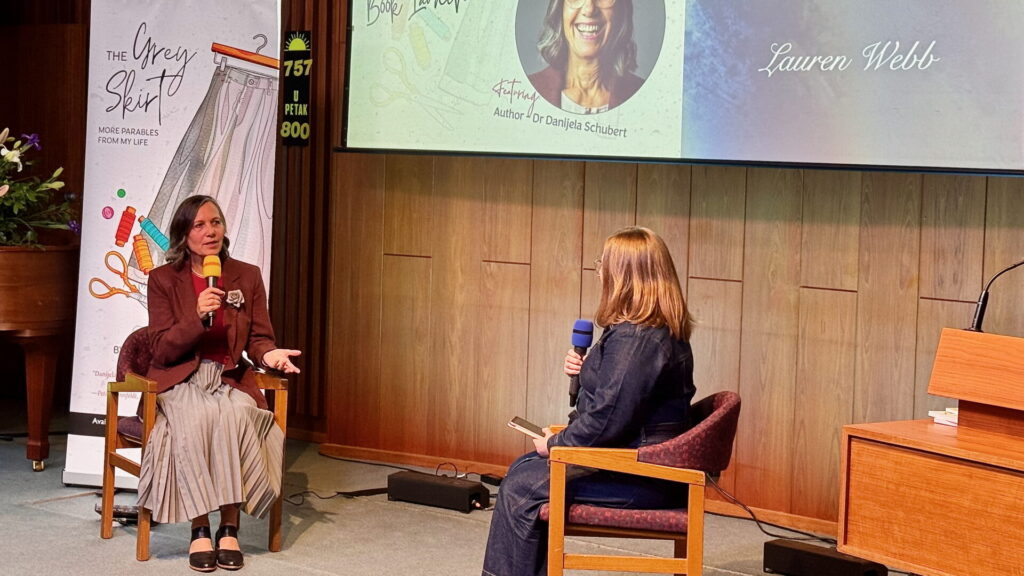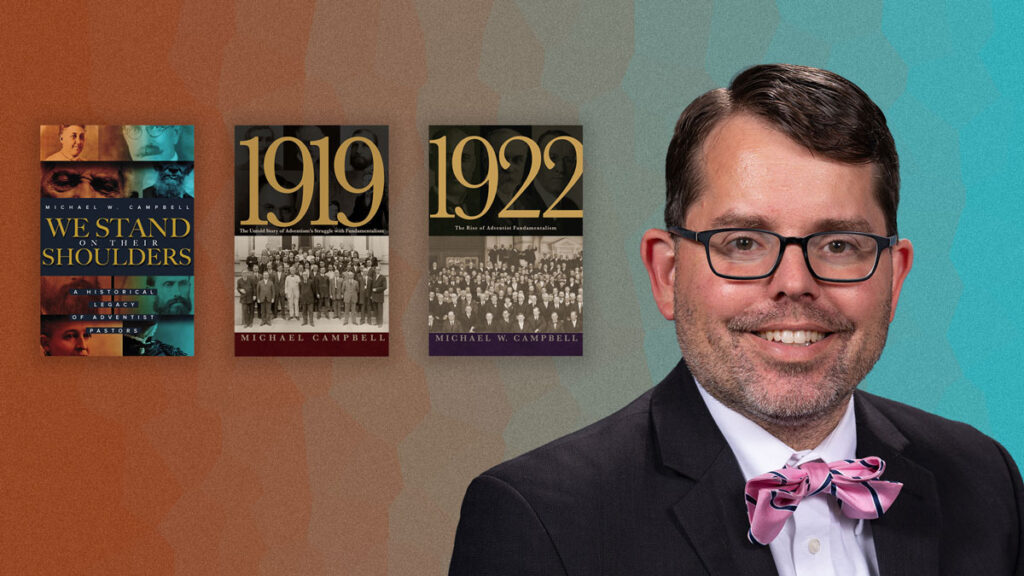It is not hard to see evidence of God’s creativity in the Bible. On the very first page, God bursts onto the scene with creative power, calling light from darkness, shaping a man from the earth. From creation to Revelation, the Bible reminds us over and over that we serve a Creator-God, one who has not only the power to make something out of nothing, but also the desire and the ability to make things beautiful.
But does the Bible celebrate human creativity as well as God’s creativity? Christians over time have produced different answers to that question (as they have to almost every other question). Some branches of Christianity have produced sublime works of art, music and literature, while others have emphasised uniformity and discouraged creative expression.
The first human artist mentioned in the Bible is Jubal, “the first of all who play the harp and flute” (Genesis 4:21). He’s sandwiched in between his brother Jabal, father of those who live in tents and raise livestock, and his half-brother Tubal-Cain, forger of bronze and iron tools. These briefly mentioned sons of Lamech are given archetypal professions, as if to represent major categories of human activity at the time. It’s intriguing that the musician is given an equal position of honour alongside the herdsman and the metalworker, perhaps suggesting that making music may be just as important as making food and tools.
After Jubal, women compose and perform songs at crucial moments in the Old Testament narrative: Miriam, Deborah, Hannah (see Exodus 15, Judges 5, 1 Samuel 2). God demonstrates His power by having the temple choir and band go into battle ahead of the army (see 2 Chronicles 20).
Then the Psalms explode in the middle of the Bible, full of hymns and choir directions. It’s equally full of human emotion: joy, praise, rage, despair. One hundred and fifty songs with lyrics celebrating everything from the sublime love of God to the all-too-human desire to crush our enemies into dust—that these made it into the Scriptures seems to me the clearest possible indication that God wants to hear His people expressing themselves.
In fact, I’d argue that the Bible not only portrays God’s creative genius and gives numerous examples of humans expressing themselves creatively with God’s approval, but that the Bible itself is the highest possible testimonial to how much God values human creativity.
Let’s face it: God could have given us a much simpler sacred text. If He’d simply dictated what He wanted to say—word for word—to a single author over a short period of time, we could have gotten the basics. The Ten Commandments, certainly. A few key bits of history? Micah 6:8 and Jesus’ two great commandments to summarise the moral code? One gospel with a clear and coherent storyline, and some edited bits of Paul’s letters?
It’s easy to imagine a much shorter, tidier, more coherent document than the current sprawling collection of 66 books by a diverse group of authors, written and compiled over centuries in various places and cultures.
Why, then? Why the Bible we have? Why this complex, sometimes-difficult collection of books, instead of a single, easy-to-understand document? Because God chose to inspire human authors; not to dictate to them, but to impress His thoughts on their minds, knowing those thoughts would be filtered through the language, experience and worldview of those human writers. Let’s face it, it is not the most efficient system for getting your message across. But it’s the one God chose to use.
After a lifetime of reading and struggling to understand the Bible, I’ve concluded that at least part of the reason God chose to communicate with us the way He did is that He values our creativity. It seems He was willing to sacrifice simplicity and efficiency in favour of allowing His people to express His message in their own language.
This is pretty breathtaking. God wants us to speak—and to sing and to paint and to sculpt—even though by doing so we flavour His message with our own personalities, our own culture, our own perceptions. God values the creativity of His people even more than He values the clarity and consistency of His own message.
At least, that’s how it strikes me, reading the Bible. We might not struggle so much with the character of God—whether He really is wrathful and vengeful—if He hadn’t given a bunch of violent ancient tribespeople the job of telling His stories. We might not argue about faith and works if God had simply sat Paul and James down and said, “OK, only one of you gets to tell people how to be saved, and you’re going to follow the script I give you, alright?” Wouldn’t everyone agree with the Adventist interpretation of Revelation if only John had written in a more straightforward fashion, without all that imagery, symbolism and poetic language?
Why four gospels? Wouldn’t one well-edited account work better? Then no-one would have to wonder whether Jesus cast demons out of one madman or two (see Matthew 8, Mark 5, Luke 8). We wouldn’t have to reconcile Mark’s Jesus, who warns everyone not to say He’s the Messiah, with John’s Jesus, who boldly stands up in the Temple court and announces, “The Father and I are one!” (see Mark 8:30, John 10:30). Aren’t simplicity and ease of understanding more important in founding a religion than variety and creativity?
Apparently not, according to God. John’s story was as valuable as Mark’s, as Matthew’s, as Luke’s, because each one had something unique to add. Each of them told recognisably the same story—but in a different way.
Of course, Jesus Himself was also a storyteller. In fact—particularly if you look at the synoptic gospels—He was a storyteller more than anything else. His parables are small masterpieces of creative truth-telling: wisdom wrapped in short scenes so unforgettable that just to say “the good Samaritan” or “the prodigal son” unfolds entire layers of theology for those who know the stories. [pullquote]
When I think about the role of creativity in the life of faith, one of my favourite stories is the story of the rich man and Lazarus in Luke 16. In this parable, Jesus describes Lazarus the beggar after death, nestled in Abraham’s bosom, while the rich man suffers the flames of hell and longs for the comfort he once denied Lazarus.
Why do I love this story? Because it’s a difficult one—at least for Seventh-day Adventists. The plot of this story clearly doesn’t fit with the rest of the Bible’s teaching on the afterlife and with Jesus’ own many references to death as a sleep. Instead, it draws on imagery from popular cultural beliefs of the time, to make a point that has nothing to do with life after death, and everything to do with how we’re supposed to treat others in this life.
In other words, Jesus didn’t let the doctrinal truth get in the way of a good story. He told a story that was creative, that was memorable, that drew upon familiar cultural images and sketched unforgettable characters. He brought the story to life and didn’t seem to care that future Adventist pastors would have a difficult time explaining it in Bible studies on the state of the dead. Here, as in the rest of the Bible, one kind of truth—the kind embodied in story, in song, in art—sometimes trumps the purely factual, doctrinal, rational kind of truth.
Maybe it’s more important, the Bible suggests, to tell a good story than to get all the facts straight. Was there one demoniac or were there two? Matthew remembered seeing two; Mark and Luke only recorded one. What matters is that all three writers knew that the power of Jesus defeats the power of Satan, and that people who are broken and rejected can be healed and made whole.
Do rich men who ignore the poor actually writhe in the flames of hell and long for beggars to bring them cool drinks? Not according to the rest of the Bible—but what matters is that you don’t forget the story the next time someone less fortunate asks you for help.
Does the litany of curses poured out by the writer of Psalm 109 really square with the command to love our enemies? Of course not, but what matters is that a man who was suffering pain and injustice expressed how he felt—and God valued his prayer enough to enshrine it in Scripture, to remind us that our cries of pain and anguish, just as much as our shouts of joy and praise, matter to Him.
Sing your song. Tell your story. Howl out your pain if you have to. Or paint your prayer. The result might not always be simple or clear—but it will be real. And it will be true. Just like the Bible.
Adapted from Manifest: Our Call to Faithful Creativity, edited by Nathan Brown and Joanna Darby.






